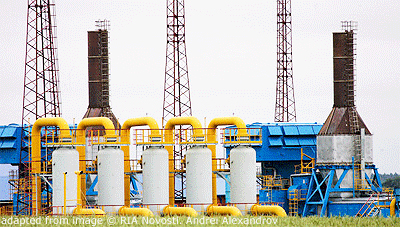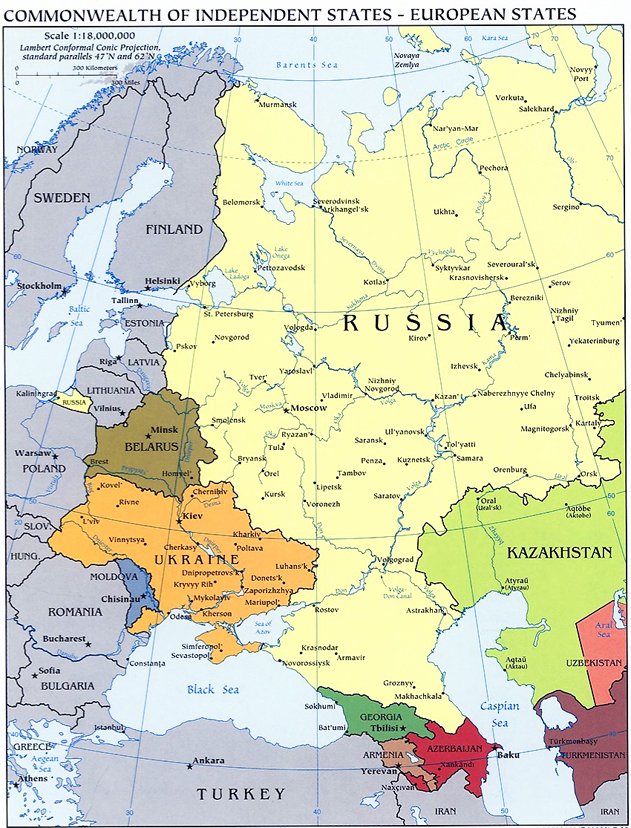Russia and Ukraine pull back from the gas brink

(Business New Europe – bne.eu – Tim Gosling in Prague – June 3, 2014) Raising hopes that Moscow and Kyiv are now serious about finding a route out of the crisis in Ukraine, the EU reported late on June 2 that the pair is mulling a proposed compromise on gas.
Russian state-controlled gas giant Gazprom earlier extended the June 2 deadline it had set for Ukraine to pay off its outstanding gas bill or face a cutoff, after it confirmed it has now received a partial payment on the $2.2bn it claims is due. Ukrainian national gas utility Naftogaz said on May 30 that it had sent $786m to Moscow.1
The threat of a major gas war to accompany the conflict on the ground in eastern Ukraine has had European states – especially those in the eastern end of the continent that rely heavily on Russian gas that transits Ukraine – watching nervously. Previous cutoffs came in the winters of 2006 and 2009 and had EU residents shivering. The events hit both countries’ reputations hard.
Yet even as Moscow and Kyiv sat down to talk over avoiding another cut, military clashes in eastern Ukraine continued to escalate. Hundreds of pro-Russian militia attacked a Ukrainian border post, while an unexplained explosion blew a large hole in the Luhansk main administration building, which is occupied by separatist forces.
However, the markets took the progress in the gas talks as a sign that tension is easing between Moscow and Kyiv. That feeling has been growing since last week’s presidential election in Ukraine, when Petro Poroshenko won a clear mandate in the first round. That gives the Kremlin someone to talk to apart from the interim authorities in Kyiv, which it insists are illegitimate.
The hope that tensions could start to recede, and therefore that the US and EU will refrain from implementing another round of sanctions on Moscow, has seen Russian assets recovering. On June 2, Russian equities – led by Gazprom and other energy stocks – perked up. The Bloomberg Russia-US Equity Index of the most-traded Russian companies in the US rose 1%.
Key test
An agreement on a new gas price for Ukraine is now the key test to keep the talks between the pair – and therefore likely an eventual path towards diffusing the conflict – on track. Brokering the negotiations, European Energy Commissioner Günther Oettinger announced that Gazprom and Naftogaz have agreed to consider an EU-proposed plan to resolve the dispute.
Cash-strapped Kyiv has been pushing for a price deal well below market levels at $268 per 1,000 cubic metres (cm) – the discounted price Moscow handed ousted Ukrainian president Viktor Yanukovych in December. Moscow said in March it planned to raise the price to $485. Ukraine has refused to start paying off its arrears until a new agreement is in place.
Oettinger refused to reveal the price that Brussels suggests, but said the EU proposal mentions a price in the middle of the competing demands, while at the same time setting out a repayment schedule. He said the respective CEOs of the gas companies had asked for time to evaluate the deal in consultation with their governments.
He added that he hoped the deal could be wrapped up in further talks in the next few days. “My request and my expectation is that we (will) come up with a package that covers the period until June next year,” Oettinger said, according to Deutsche Welle.
“Neutral observers would have always suggested that a deal should/could be done around the mid point,” notes Tim Ash at Standard Bank. “This would be around $385, i.e. close to levels paid by other European countries. Getting all the sides around the table and sticking to the script has been very challenging for the EU, given events in Ukraine, which has a huge interest in ensuring no disruptions to energy supplies. This will now be a key test of the various sides desire to talk and deal.”
Keeping the gas trade between the two countries going is clearly a positive in the bid to keep Moscow and Kyiv back from open confrontation. A short term deal on gas as proposed by the EU would be the next step, and allow the pair to build on that foundation.
However, time is short, with Moscow now looking keen to push through a wider deal quickly it seems. Reports of fractures amongst the various armed separatists in eastern Ukraine and the breakdown of general law and order are growing. Meanwhile, Poroshenko has committed Kyiv to ending the conflict one way or another, and Ukrainian military action has stepped up in the last 10 days or so.
That means there is little time to sort a short term gas agreement. Overall, Russia claims it is owed $5.2bn by Kyiv for gas. On June 2 it set a new deadline of June 9 for payment of the $2.2bn Ukraine has accepted it owes thus far, according to a statement from the energy ministry. “Before this deadline Ukraine has to pay the remaining part of $2.23 billion debt and also agree on payment schedule for the gas delivered after April 1,” the statement said.
Ash suggests Kyiv will look to delay signing any new deal this week however. “Given the huge political sensitivity of gas/energy negotiations – one former PM (Tymoshenko) went to jail over this in the past, and arguably the December cash and gas deal with Russia was one factor which eventually brought former president Yanukovych down – the administration in Kyiv might prefer to await President-elect Poroshenko’s inauguration on Saturday first before inking any deal, i.e. to ensure any deal has full political backing.”

